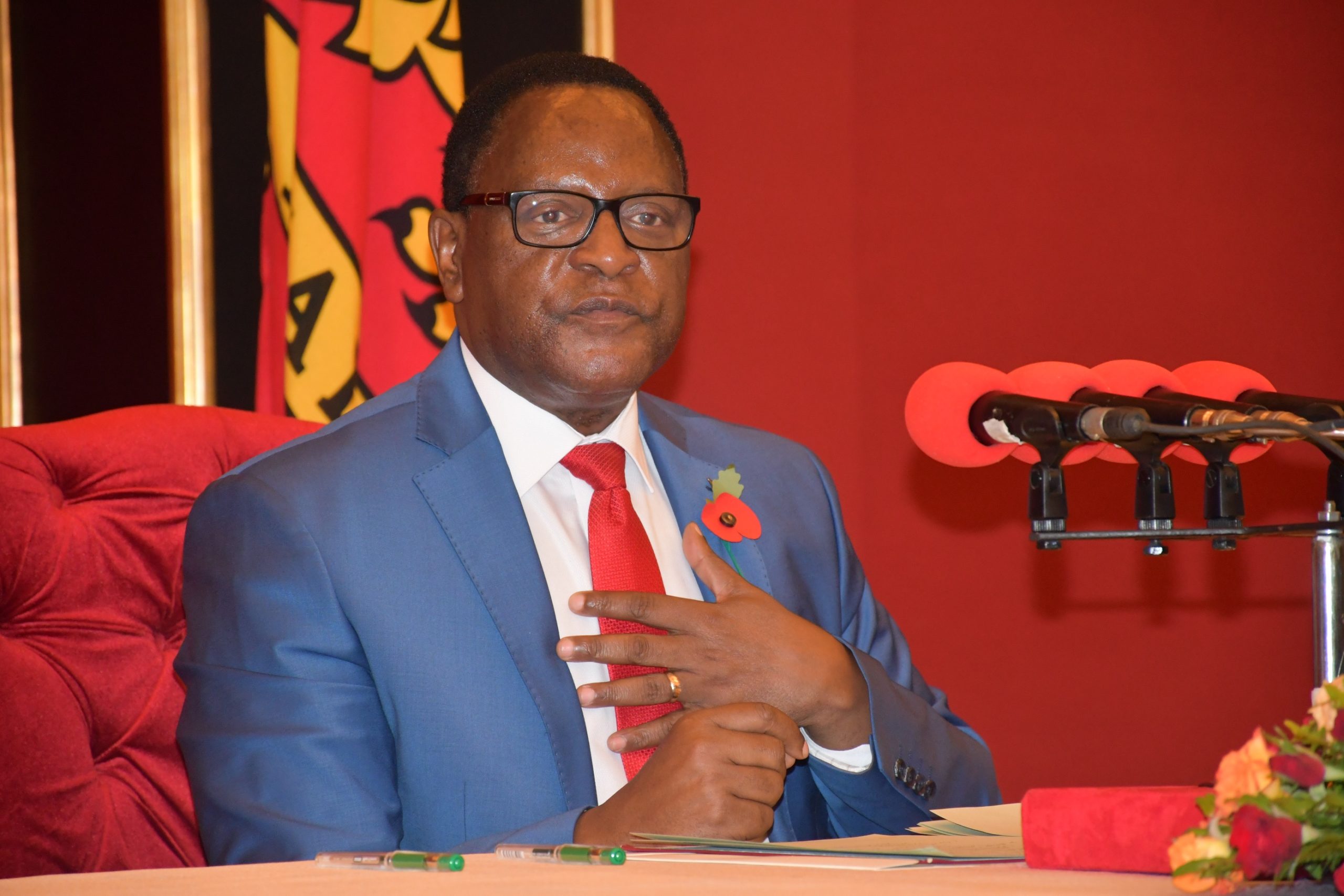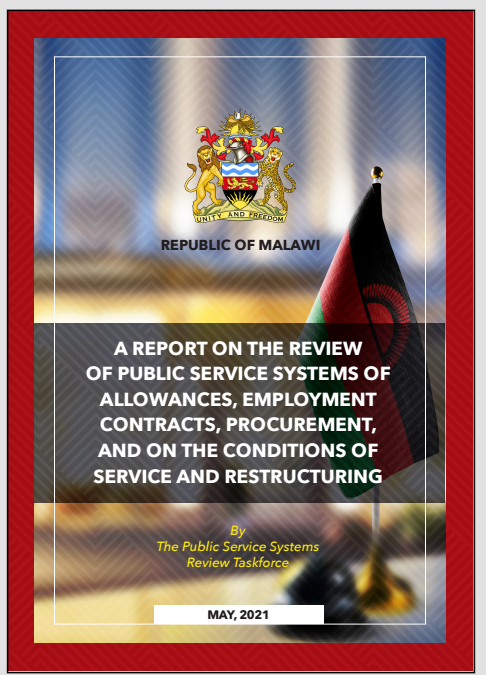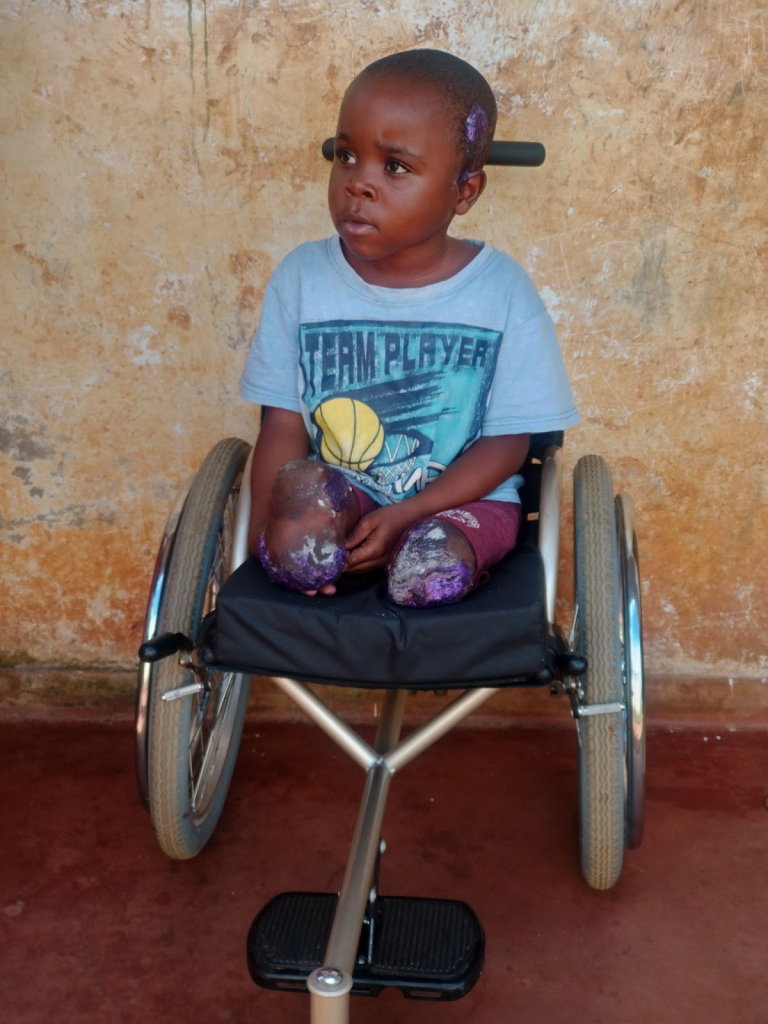BY SUZGO CHITETE
Amajor contract for the supply of ambulances for Malawi’s Ministry of health degenerated into a tug of war among government officials with conflicting personal interests in the outcome of the bidding process, sources in the know told the Platform for Investigative Journalism (PIJ).
The Anti-Corruption Bureau (ACB) has just suspended the Ministry of Health’s intention to award a contract to a Zambian firm – Grandview International to supply 35 ambulances – in order to investigate how the contract was awarded.

This ACB suspension of the contract is the latest in a controversial ambulance which had the blessing and interest of cabinet ministers and statehouse officials in Peter Mutharika’s former Democratic Progressive Party administration. But technocrats charged with execution, apparently, frustrated the move.
The PIJ has learnt that in 2018, then minister of health Atupele Muluzi highlighted the shortage of ambulances and requested special funding for the exercise from his cabinet colleague, Goodall Gondwe, then minister of finance.
In a letter reference number DPPD/21 dated January 22 2018, Muluzi requested Gondwe to provide K4 billion outside the health ministry’s budget for the procurement of 66 ambulances.

Gondwe approved Muluzi’s request and further proposed that the number of ambulances be more than quadrupled to 300.
Gondwe’s response, dated February 2 2018 under reference number FIN/BD/2/2/9/310, reads in part: “I totally agree with your suggestion that some resources should be set aside in the 2018/19 budget for procurement of ambulances for our health facilities.
“I am of the view that instead of planning for 66 ambulances, we could be planning for the procurement of 300 ambulances.”
PIJ has established that after Gondwe’s communication, the ministries of finance and health received a proposal from a South African company calling itself Vision International to supply 300 ambulances. The payment plan was staggered over five years, allegedly to give the government fiscal space.

It is not clear how the South African firm came to know that Malawi needed 300 ambulances.
But sources familiar with the deal claimed a syndicate of senior government officials was complicit.
Vision International was to supply the ambulances at a price of K32 billion, meaning that government would pay an average of K6.4 billion annually over five years.
In a memo to secretary for health Dan Namarika reference number EAD 13/1/2/1 dated June 20 2018, Ben Botolo — who was then secretary to the Treasury — described the deal as technically and financially viable and proposed that “that government may consider procuring such type of ambulances”.
He warned, however: “I would urge your ministry … to procure such vehicles in line with the Procurement and Disposal of Assets Act, from which this may be seen as single sourcing and plunge your ministry and government into misprocurement battles.”
Following Treasury’s advice, the ministry advertised for international competitive bids for the supply of the ambulances, and three companies were short-listed: Vision International, Grand View International, and Savenda.
The bidders, at their own cost, were asked to organise inspections of the vehicles. In November and December 2018, a team of government officials travelled to the United Kingdom and Dubai for the inspection, with the sponsorship of the bidders.

Former PPDA acting director Timothy Kalembo described this as a conflict of interest and promised to investigate. But no investigation has ever taken place even after following up with PPDA several times.
A member of the Malawian delegation who asked to remain anonymous made the following revealing comment: “Interestingly, while there was so much interest to have Vision International given the contract, the inspection team went to South Africa but could not locate the company’s office and could not inspect anything.
“We met at some lodge and a representative from the company gave an excuse that they were not ready for inspection.”
Our source in the delegation also said some presidential aide used to give them pressure to settle for the South African company “no matter what”.
Following the inspection and contrary to the expectation of some interested parties, the ministry settled for Grand View International and in a letter dated February 15 2019, the PPDA stated “no objection” to it supplying ambulances worth K4 billion, the sum set aside in the budget.
In the letter, PPDA clarified that it had withheld its approval for the supply of 300 vehicles because of limited funds.
“It was interesting that once the Ministry settled for Grandview International Treasury said there were no funds even when they had a representative in the inspection team. From 300 ambulances – worth over K30 billion – only K4 billion was made available” said a senior official in the Ministry of Health who is familiar with the deal.
In a twist of events – even after no objection was granted for the supply of ambulances worth K4 billion kwacha, the tender was cancelled and re-advertised and this time around calling for supply of 100 ambulances.
Two companies emerged as successful bidders; Paramount Holdings and Movesa. They were both asked to arrange for inspections at their cost. According to our sources – some interested parties had shifted their interest from Vision International to Paramount Holdings.
Paramount Holdings took the inspection team to Dubai – to see their suppliers and some pictures leaked showing officials dining with a bidder – a conduct a Procurement Specialist Ken Nyirenda described as suspicious and an act of fraud.
But Managing Director for Paramount Holdings Gedial Prakelsh saw nothing wrong in his conduct saying he needed to do this as a business person.
“We were shocked that Paramount Holdings, immediately after the inspection, was awarded the contract even without inspecting for his competitor Movesa who had already booked flights to take the team to Belgium for Inspection”.
Movesa had written the Ministry expressing displeasure on the conduct of the ambulance inspection team.
Ambulances deal eluded ACB
The Anti-Corruption Bureau (ACB) has confirmed that Ministry of Health’s intention to award a contract to supply 35 ambulances to Grandview International bypassed its vetting as required by the law.
The notice of intention to award the contract indicated that local bidders, including Toyota Malawi and Nissan Malawi, offered lower rates, sparking a public outcry – leading to ACB suspending the award until investigations are done.
The Public Procurement and Disposal of Assets act {2017} requires that the ACB vets all single-source and high-value contracts. Section 37(11) provides: “Single source method of procurement or any high-value procurement shall be subject to vetting by the Anti-Corruption Bureau, pursuant to the powers conferred on the bureau under section 10 of the Corrupt Practices Act.”
The Public Procurement and Disposal of Assets Authority considers any contract above K50 million a high-value deal that must be subjected to ACB vetting before a notice of intention to award it is issued.

In an interview with PIJ ACB senior public relations officer Egrita Ndala said the new deal was not sent for vetting before issuing a notice of intention to award a contract.
This is the second time, since last year, that the ministry has bypassed ACB in awarding a contract. Last year the Ministry awarded a K4 billion contract to Paramount Holdings to supply 74 ambulances without vetting and an opinion from the Government Contracting Unit to stop the award of contract – to have it follow procedure was ignored.
Ndala said the legal requirement to vet contracts allows for checking of the database to see if the supplier or consultant has a case with the bureau.
She said if the contractor has a case (is being investigated by any agency within or outside), the legal and prosecution team within the bureau is consulted to provide guidance on whether clearance should be given.
Ndala said: “If the ACB vetting is not done, the law may not be followed and officials may abuse their powers in the procurement process.
“Procuring and disposing entities may not be able to realise value for money. The bureau can prosecute officials who break the law.”
She said the bureau also checks adherence to the Public Procurement and Disposal of Public Assets (PPDA) Act of 2017 in the procurement process to ensure transparency, accountability and fairness.
Procurement authority director-general Elias Hausi asked for more time before responding to a question about why ACB was bypassed in the K1.6 billion contract. He had yet to respond when the PIJ went to press.
In a separate interview this week, private procurement specialist Amos Nyambo said by bypassing ACB vetting, the contract had raised a red flag.
While there was no excuse for breaking the law, he emphasised that some ministries, departments and agencies (MDAs) may not submit to vetting because they want to avoid delays that could affect value for money.
Nyambo, who is board chairperson of Malawi Institute of Procurement and Supply, said: “Processes have to be clear. For example, if a contract goes for vetting, how does one avoid situations where processes are delayed unnecessarily? This [prescription of time frames] could motivate more MDAs to go for vetting.”
He also called on the PPDA to crack the whip over errant officers who deliberately bypass procedures, saying this would deter others.
“The procurement regulations provide for penalties for those who defy the law; let it be applied and publicised to send a strong message to others.
“On our part, we discipline members involved in procurement malpractices and this helps to promote professionalism,” said Nyambo.
The Government Contracting Unit, which also vets contracts, said the ambulance deal had not yet reached a stage where they could intervene.
The unit’s engineering specialist, Vincent Sikelo, said they become involved when an MDA has prepared a contract and their role is to vet technicalities in the contract to maximise value for money.
He agreed that some MDAs bypass his office for their own reasons.
Said Sikelo: “We look at risks; hence, we focus more on terms and conditions and make modifications where necessary to avert wastefulness. We have stopped contracts before.
“We encourage MDAs to follow all processes including vetting at ACB as well as here, so that public procurement is done in the best interest of the people.”
However, in a written response last week, Ministry of Health spokesperson Joshua Malango justified the selection of Grandview, saying the lower-priced local companies “failed due to non-compliance [with] minimum specifications as indicated in the bid document.
“These include the requirement that the ambulances should have raised roof, ground clearance and pay load.”
He said Grandview also committed to providing free after-sales service for the ambulances through a local partner he identified as Avis.
He would not say how long the free-service period will last.
It is understood that Toyota Malawi provides free service for two years or 50 000 kilometers of driving, besides a three-year warranty.

.jpg)


.jpg)



